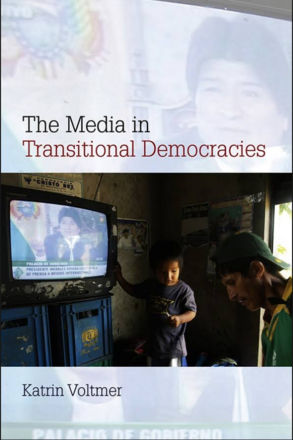
The last quarter of a century has seen an unprecedented wave of democratisation around the globe. In these transitions from authoritarian rule to a more democratic order, the media have played a key role by facilitating - but frequently also inhibiting - democratic practices to take root. This book provides an accessible, systematic introduction to the media in transitional democracies. It analyses the problems that occur when transforming the media into independent institutions able to inform citizens and hold governments to account. The book covers the following topics:
- normative conceptions of media and democracy;
- the role of the past in the transition process;
- the internet as a new space for democratic change;
- the persistence of political interference in emerging democracies;
- the interlocking power of media markets and political ownership;
- the challenges to journalistic professionalism in post-authoritarian contexts;
- the role of the media in divided societies.
The book takes a global view by exploring the interplay of political and media transitions in different pathways of democratisation that have taken place in Eastern Europe, Latin America, Africa, and Asia. It will be of interest to advanced students and scholars who want a better understanding of the media outside established Western democracies. The book will also be of great value to policymakers and activists who are involved in strengthening the media in transitional democracies.
Katrin Voltmer is senior lecturer at the Institute of Communication Studies at the University of Leeds.
Tags: Western Balkans Asia Africa AmericasThe content of this article can be used according to the terms of Creative Commons: Attribution-NonCommercial 4.0 International (CC BY-NC 4.0) . To do so use the the wording "this article was originally published on the Resource Centre on Media Freedom in Europe" including a direct active link to the original article page.

